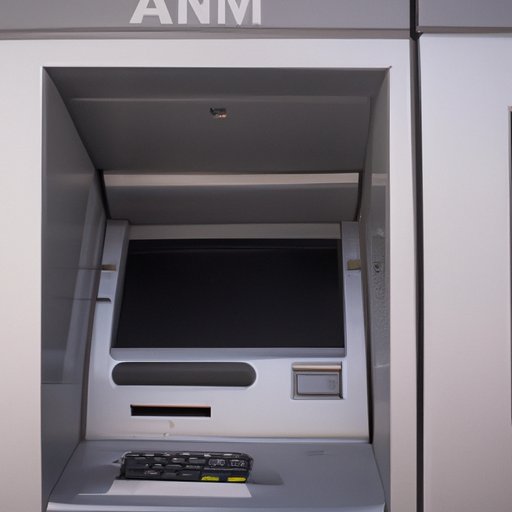
Can You Deposit Money in Any ATM?
Have you ever found yourself needing to deposit cash into your bank account, only to realize the branch is closed? It can be frustrating to not have access to your funds when you need them most. That’s where ATMs come in handy, but can you deposit money in any ATM? In this article, we’ll explore the answer to that question and more.
How to Deposit Cash in an ATM
Depositing cash in an ATM is a quick and easy process. Here are the steps:
- Insert your debit or ATM card into the machine
- Enter your PIN
- Select “Deposit” or “Deposit Cash”
- Insert your cash
- Confirm the amount and select “Deposit”
- Take your receipt and card
Most ATMs can accept $1, $5, $10, $20, $50, and $100 bills. However, fees may vary depending on the bank. Some banks may charge a fee if you use an ATM outside of its network, so it’s important to check with your bank beforehand.
Types of ATMs
There are three types of ATMs: bank-owned, standalone, and networked ATMs. Bank-owned ATMs are located inside or outside bank branches and are usually free to use for account holders. Standalone ATMs are owned by independent companies and may charge fees for transactions. Networked ATMs are part of a shared network and can be used by multiple banks.
While most ATMs can accept cash deposits, some standalone ATMs may not have the capability to do so. It’s important to check the ATM’s features before attempting to deposit money.
Limitations on Deposit
Most ATMs have a limit on how much cash can be deposited per transaction, usually around $1,000. However, some banks may allow higher limits. It’s important to check with your bank regarding its policy on ATM deposits.
Additionally, depositing foreign currency may not be possible or may come with a significant fee. It’s best to check with your bank to see if it offers foreign currency deposits at its ATMs.
Tips for Finding ATMs
If you need to find an ATM that can accept cash deposits, there are a few tips to keep in mind:
- Check with your bank to see if it offers a mobile app or ATM locator tool
- Use a search engine to find standalone ATMs that accept cash deposits
- Look for bank-owned ATMs in your area
It’s important to note that some ATMs may not be labeled as deposit-taking machines, but they may still have the capability to do so. It’s always best to check with the ATM or your bank before attempting to make a deposit.
Pros and Cons of Deposit Methods
When it comes to depositing cash, there are several options to choose from. Here are the pros and cons of depositing cash in an ATM versus visiting a teller or using mobile banking:
ATM Deposits
- Pros:
- Quick and easy
- Available 24/7
- No need to interact with a teller
- Cons:
- May come with fees
- May have limitations on deposit amount
- May not accept foreign currency
Teller Deposits
- Pros:
- Ability to deposit large amounts of cash
- Face-to-face interaction
- No need for an ATM card
- Cons:
- May require a trip to the bank
- May only be available during bank hours
- May come with longer wait times
Mobile Deposits
- Pros:
- Quick and convenient
- No need to leave your home
- No need for an ATM card
- Cons:
- May take longer to process
- May have limitations on deposit amount
- May require a clear image of the check being deposited
Final Thoughts and Troubleshooting
When using an ATM to deposit cash, it’s important to be vigilant and take precautions. Always keep your receipt and monitor your account for any discrepancies. If you encounter any issues while attempting to deposit money in an ATM, stay calm and follow these troubleshooting tips:
- Check the bill feeder for any jammed bills
- Make sure the ATM is compatible with the cash you’re depositing
- Double-check the amount before confirming the deposit
- If the ATM is out of order, try a different machine or visit a teller
Conclusion
In conclusion, the ability to deposit cash in an ATM depends on the type of ATM and the bank’s policies. While most ATMs can accept cash deposits, there may be limitations on deposit amounts and fees may vary. It’s important to check with your bank regarding its policy on ATM deposits and always be cautious when using an ATM. Whether you choose to use an ATM, visit a teller, or use mobile banking, there are pros and cons to each option. Ultimately, the best option depends on your individual needs and preferences.





